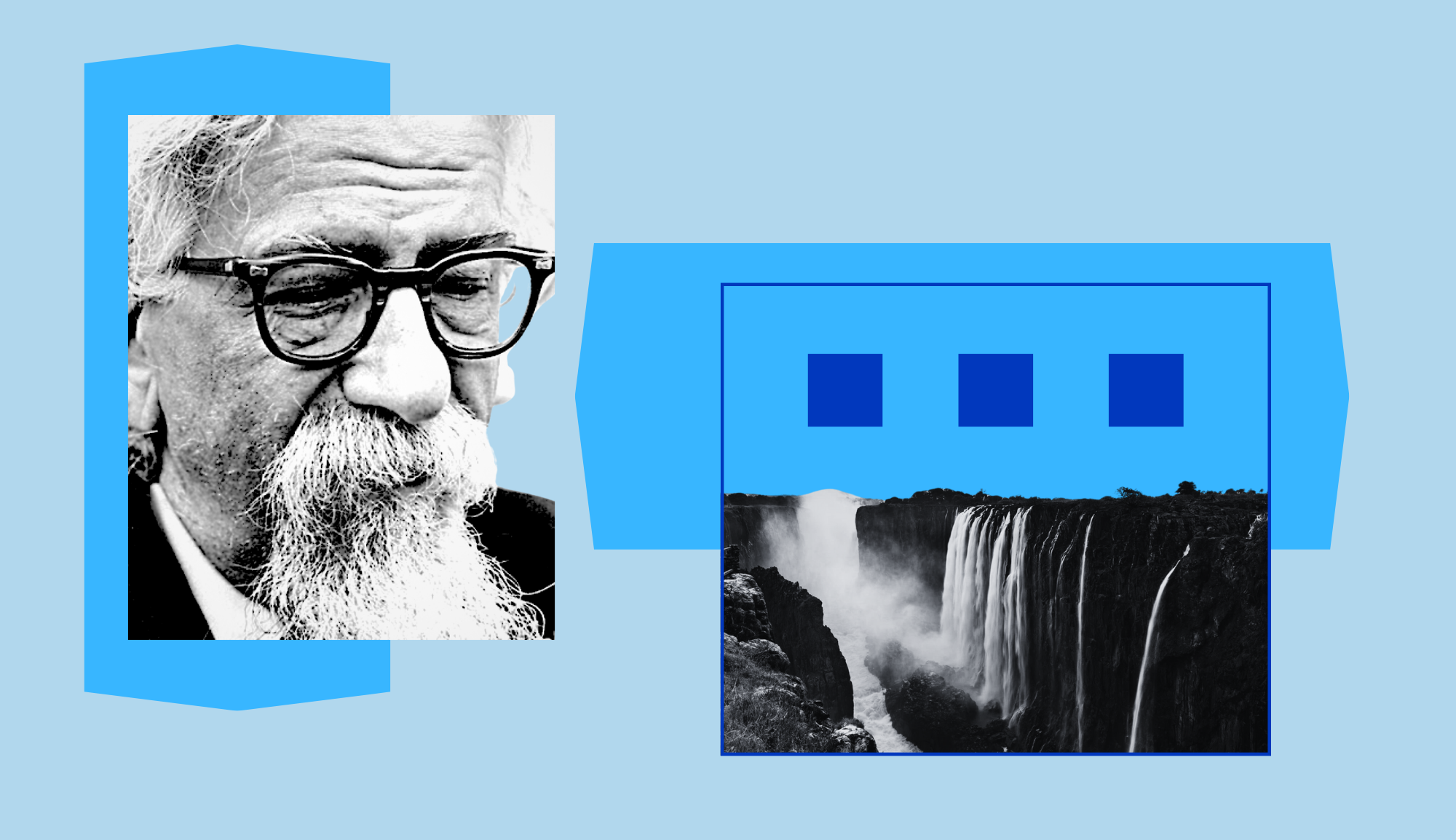Download the full reader here.
Appreciate everything, even the ordinary.
Especially the ordinary.
— Pema Chodron
Never once in my life did I ask God for success or wisdom or power or fame. I asked for wonder, and he gave it to me.
— Abraham Joshua Heschel
How can we find wonder in a world that often seems to be post-wonder? This is a question that we have struggled with since the very beginning of the 18Forty project, and each topic, each guest, has offered a refractory angle on this question, in a way.
James Richardson, the poet and master of the aphorism, commented in his underappreciated work, Vectors, that the new gets old a lot faster than the old does, which speaks to the dilemma at hand. On the one hand, contemporary life is a headlong rush into the pale blue light of the horizon, the beckoning whisper of manifest destiny rebounding off the edges of our consciousness. My personal favorite expression of this phenomenon comes from the Biblical idiom, from Devarim 35: חש עתידות למו, and destiny (or is it the future?) rushes towards them. This is our life, in a river hurdling (more than ever?) towards the future. And so we turn back, towards the ancient truths, those ringing revelations, but so often we find that our memory doesn’t serve us as well as we had hoped. We awaken without wonder, and are saddened by what we find. Ancient truths, at times, also need new clothing, new words, a new idiom.
… Heschel is still a sort of aesthetician of ideas, a poet at heart…
Enter Rabbi Abraham Joshua Heschel (1907-1972). A professor of Jewish mysticism and author of some of the most enduringly popular books on Jewish thought and ideas, Heschel’s wisdom has found an increasingly receptive audience in the world. The question of wonder—and our trampling hunt through the jungle of modernity for the humble underbrush of glimmering wonder—haunted Heschel. The relationship between the ancient and the contemporary offered a similar dilemma for the thinker, and some of his greatest work is in his work on the prophets, whose voices Heschel renders as shockingly contemporary, in their demands of us to live more morally righteous lives, unequivocally.
Heschel grew up in a distinguished hasidic family in Poland, a direct descendant of the Apter Rav, and a scion of many of the great hasidic dynasties of his time. It was assumed by all that the young Heschel would grow into a chassid like his family, if not a rebbe, but life is more complex than our assumptions, and Heschel ended up in New York City, teaching Jewish mysticism in the Jewish Theological Seminary. Heschel’s brand of spirituality was a rarity in the seminary at the time, and in American Jewish life at large, and he was largely underappreciated for much of his life. In many circles, he was most famous for his civil rights work. In others, for being the hasidic writer who taught at the Seminary.
One final note on his background, before we jump into things: early in his life, Heschel wanted to be a poet and is said to have travelled to one of the most notable Jewish poets of the era, in Warsaw, to consult with the aged sage about his poetic ambitions. According to the tale, the poet told Heschel that he could make a good poet, or a great philosopher, and so Heschel became a philosopher. But it’s more complicated than that, for even in his philosophy, in his elucidations of profound and esoteric ideas, Heschel is still a sort of aesthetician of ideas, a poet at heart, and it’s no coincidence that he remains one of the greatest articulator of the beauty of Jewish life in our age. (For the curious, his poetry, while scarce compared to his voluminous other writings, is also required reading for people with heart. Check it out.)
If you’ve ever met anyone who has read Heschel, you might have noticed a peculiarity: very few appreciators of his work agree on what his most important work is. A popular suggestion is his magisterial work on Shabbos, The Sabbath, and yet some (including his daughter Susannah, in her recent conversation with 18Forty) look at other works, such as his God in Search of Man, or perhaps the aforementioned work on the prophets. To get things straight, we are honoring the many sides of his legacy by putting together some of our favorite reading on the great thinker. A note to the curious: Like all writing about writing (about writing), something inevitably gets lost in the process, and if you are curious, read some of his words for yourself—they are far greater than any of the works about him can indicate. But for now, we have chosen a few of his poems, along with Aaron Leiblich’s article for Hakirah, “An Introduction to Abraham Joshua Heschel’s Theology,” Art Green’s article, “Abraham Joshua Heschel: Recasting Hasidism for Moderns,” and Susannah Heschel’s article, “Theological Affinities in the Writings of Abraham Joshua Heschel and Martin Luther King Jr.” (And because I know it’s too much as it is, I’ll just add a quick cough and a comment that Shaul Magid’s article on Heschel and Thomas Merton is delightful. Just saying.)
Will these words help us find wonder in our lives? Perhaps the answer is less about the words than the spirit with which we read them, and the heartfulness we bring to the process. Let us try then, just a bit, just a bit more, together.
Download the full reader here.





































